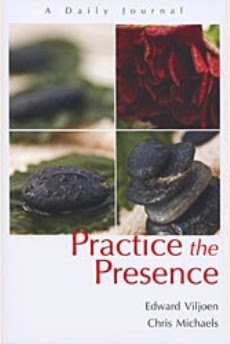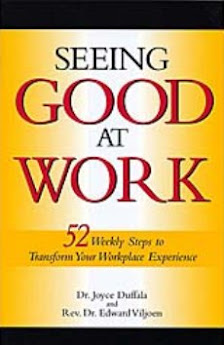 Learning about the Bible as an adult has been an eye-opening experience. I've read about the challenges early translators had to accurately interpret poetic language in some of the books. I’ve learned about the difficulties of transferring idioms from ancient times to relevant and contemporary ideas. I’ve learned about new ways to view the stories of the Bible, as metaphors to offer insight about inner life, relationship conflicts and resolutions, the courage and strength of ordinary people to face trials just like we do today and so much more. Freed from the weight of all-or-nothing thinking I’ve enjoyed reading both old and new Bible scholars who are uninhibited by the need to take the Bible as the word of God.
Learning about the Bible as an adult has been an eye-opening experience. I've read about the challenges early translators had to accurately interpret poetic language in some of the books. I’ve learned about the difficulties of transferring idioms from ancient times to relevant and contemporary ideas. I’ve learned about new ways to view the stories of the Bible, as metaphors to offer insight about inner life, relationship conflicts and resolutions, the courage and strength of ordinary people to face trials just like we do today and so much more. Freed from the weight of all-or-nothing thinking I’ve enjoyed reading both old and new Bible scholars who are uninhibited by the need to take the Bible as the word of God.
American philosopher, Ernest Holmes, wrote “Strange as it may appear, the Bible contains a key to health, happiness and success. It tells how to obtain and what to avoid. When understood, the Bible is a text book for life. But the Bible presents its truths in a mystical manner; its meaning is hidden behind story and fable, work pictures, and figures of speech. We must seek its hidden meaning and reveal the purpose underlying its teaching.”
I think the key contained in the Bible remained hidden from me for so long because I didn’t get the big picture as a child; I didn’t understand the context. I didn’t realize that the world view of the ancient people who authored and heard the stories of the Bible was limited to their understanding of the physical world as they knew it. Bishop Spong’s book Rescuing the Bible From Fundamentalism introduced me to details that seem obvious to me now but which I hadn’t considered: the authors of Genesis thought that the earth was flat, surrounded by water on all sides and that the sky was a dome over the earth into which the sun had been placed to bright up the day and that God was thought to live just beyond the sky, like an earthly king, causing everything to be. I remember the relief of thinking, the people who wrote these Bible stories may have  made a few other errors too.
made a few other errors too.
Bishop Spong wrote “The Bible relates to us the way our ancient forebears understood and interpreted their world, made sense out of life, and thought about God. Our task is the same as theirs. We must interpret our world in the light of our knowledge and suppositions. We must, as they sought to do , make sense out of life in terms of our understanding of meaning and values. We must think about God in the light of our perceptions of divinity. The Bible becomes not a literal road map to reality but a historic narrative of the journey our religious forebears made in the eternal human quest to understand life, the world, themselves and God.”
This has been wonderful, freeing me up to read the stories of the Bible as I would and revered stories with an openness to learn their life-lessons and the liberty to abandon what
doesn’t apply and what isn’t understood and more importantly, to contradict that which is inhumane and goes against human rights and/or the current law of the land. I do not embrace the caste system of the Bhagavad Gita and I do not embrace the laws of punishment, human ownership and so on in the Bible.
Now I have inherited something wonderful: stories. I love stories. And the Bible has some good ones. Like the story of Noah, for example. Now I can read about the people who still debate whether or not the story is a literal account of a flood that took place at a certain time, and just shrug; even when I learn that some have spent an extraordinary amount of time compiling scientific reasons why it could or couldn’t possibly have taken place as described in the Bible. Shrug.
As one friend reminded me, he only needed one thing to convince him that the story is a metaphor rather than an actual account of an historic event: the image of a boat three stories high with eight human beings taking care of more animals than a city zoo; for about a year. Think sanitation!
Without neither the bonds of literal reading nor burden to disprove, the story gets interesting quickly. Noah was getting on 600 years of age when the story begins. Shrug. Why not? He is described as being “blameless” among the people of his times—in other words he was unaffected by the ways of the world around him. And it wasn’t just any, ordinary world around him, it was an unimaginably degraded, horribly corrupt society that he lived in. Who says the story isn’t relevant? But he didn’t get all swallowed up by that; he was able to maintain his identity regardless of the pressures of the culture around him.
See now? Isn’t that interesting? Don’t you just want to know how, why, when, what?
I do, because it’s the story of my own life and times and of your own life and times. It sounds like it could be the story of that within you and me which is in its original state of innocence and cannot be degraded by the trends of our time. It’s a story that expands on Henry David Thoreau’s words: If I seem to walk out of step with others, it is because I am listening to another drum beat.
Oh the things I learned from Noah. Let me know if you want to know more.























No comments:
Post a Comment